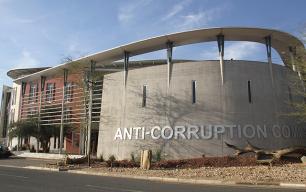Reevaluating Traffic Offense Penalties in Namibia: A Call for Proportional Justice

In recent years, Namibia has implemented stringent measures to enhance road safety, including substantial increases in traffic fines. While the intent behind these measures is to deter dangerous driving behaviors, there is growing concern that the treatment of traffic offenders may be disproportionately severe, equating them with individuals who commit grave criminal acts such as rape or murder. This article examines Namibia’s traffic fine laws, compares them with those of other Southern African Development Community (SADC) countries, and advocates for a more balanced approach that distinguishes between administrative infractions and serious criminal offenses.
Namibia’s Traffic Fine Structure
In December 2010, Namibia introduced significantly higher admission-of-guilt fines for various traffic violations. For instance, driving without a valid driver’s license now attracts a fine ranging from N$500 to N$3,000, with possible imprisonment of six to 18 months. Exceeding speed limits can result in fines starting from N$375 for minor breaches to N$4,000 for more severe cases. Reckless or negligent driving carries a fine of N$4,000, reflecting the country’s commitment to curbing dangerous driving behaviors.
Comparative Analysis with SADC Countries
A comparison with neighboring SADC countries reveals both similarities and differences in traffic law enforcement:
- Botswana: The Road Traffic Act has been amended to correct bad road user behavior. Driving without a valid driver’s license incurs fines between P500 and P3,000, with possible imprisonment of six to 18 months. Exceeding speed limits results in fines starting from P120, increasing by P20 for each kilometer per hour over the limit, with potential imprisonment of up to two years.
- Tanzania: Traffic fines range from TZS 20,000 to TZS 300,000. Speeding offenses attract a fine of TZS 30,000, with repeat offenses potentially leading to license suspension. Drunk driving can result in fines up to TZS 300,000, possible imprisonment, and license suspension.
- Malawi: In an effort to reduce road accidents, Malawi increased traffic fines by over 200%. Driving without a driver’s license now results in a fine of K100,000, up from K10,000. Dangerous overtaking and exceeding speed limits each carry fines of K50,000, significantly higher than previous penalties.
The Distinction Between Administrative and Criminal Offenses
While the enforcement of traffic laws is crucial for public safety, it’s essential to differentiate between administrative infractions and serious criminal offenses. Traffic violations, such as speeding or failing to wear a seatbelt, are administrative offenses that, although potentially dangerous, do not carry the same moral culpability as crimes like rape or murder. Equating the treatment of traffic offenders with that of serious criminals can lead to perceptions of injustice and may undermine public trust in law enforcement.
Recognizing this, Namibian Police Inspector-General Joseph Shikongo has directed officers to exercise discretion when dealing with minor traffic offenses. In a circular issued in September 2024, Shikongo emphasized the importance of fostering a constructive relationship between law enforcement and the public, encouraging officers to issue warnings for minor infractions where appropriate, rather than immediate penalization.
Traffic Fine Warrants and the Need for Reform
Under the current law, when a traffic fine warrant of arrest is issued, the offender is required to appear in court. This approach unnecessarily criminalizes individuals for failing to pay fines, treating them as if they committed serious crimes. Instead, a more reasonable approach would be to require individuals with outstanding warrants to pay their fines immediately, with an additional penalty of up to 30% on the existing fine.
Not paying a traffic fine should not be classified as a criminal act, and it certainly should not carry severe penalties such as imprisonment. It is unjust to send individuals who have committed minor infractions to jail, placing them alongside rapists and murderers. Traffic fines should remain a financial and administrative matter, rather than being escalated to the level of criminal prosecution.
A Call for Proportional Justice
As Namibia ushers in a new era under the leadership of Honorable President Netumbo Nandi-Ndaitwah, there is an opportunity to reassess the country’s approach to traffic law enforcement. Policymakers are urged to consider the following:
1. Proportional Penalties: Align fines and penalties with the severity of the offense, ensuring that minor infractions do not attract disproportionately harsh punishments.
2. Alternative Sanctions: Implement corrective measures such as mandatory road safety education programs for minor offenses, promoting behavioral change without resorting to punitive fines.
3. Public Awareness Campaigns: Enhance public education on traffic laws and the rationale behind them, fostering voluntary compliance and a culture of safety.
4. Judicial Oversight: Ensure that the judiciary has the discretion to assess the context of each offense, allowing for penalties that reflect individual circumstances.
By adopting a balanced approach that distinguishes between administrative and criminal offenses, Namibia can uphold the rule of law, protect public safety, and ensure that justice is administered fairly. Such measures will not only enhance the effectiveness of traffic law enforcement but also strengthen the relationship between law enforcement agencies and the communities they serve.
- 492 views










Comments